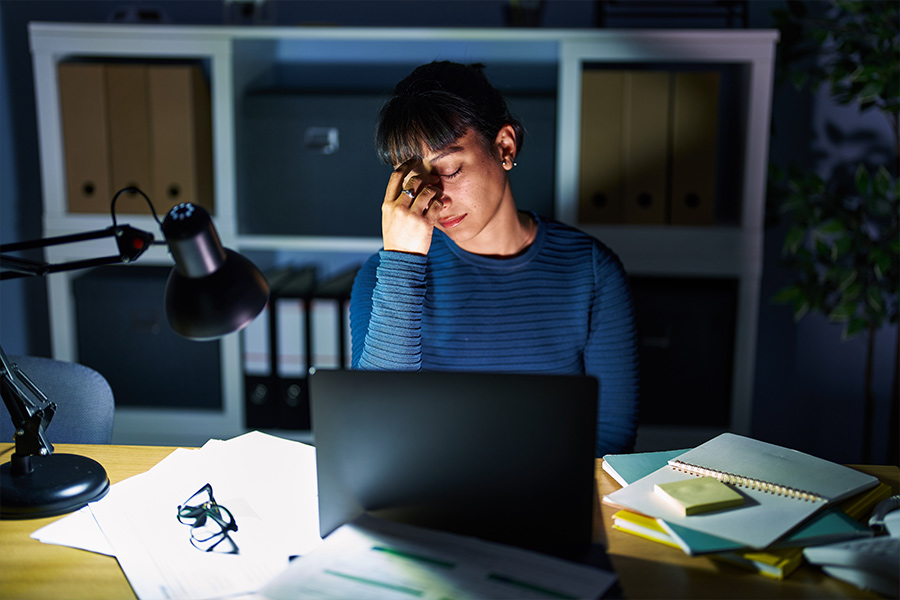
Dry eyes at night? Here’s what’s really happening
Do your eyes feel sore, gritty, or unusually dry in the evenings or when you wake up? Night-time dry eye is a common complaint, and it can affect sleep, comfort, and vision. But why does it happen, and what can you do about it?
Why dry eyes are worse at night
There are several reasons why symptoms often flare up in the evening:
- Reduced blinking: During the day, blinking spreads tears evenly. At night, your blink rate slows, and your eyes may dry out.
- Contact lens wear: Wearing lenses throughout the day reduces oxygen flow to the eyes, leading to end-of-day dryness.
- Digital strain: Long hours on screens reduce blinking, so by bedtime your eyes are already irritated.
- Environment: Bedrooms with fans, heating, or air conditioning can dry the air and your eyes.
- Incomplete eyelid closure: Some people’s eyelids don’t fully close during sleep, leaving eyes exposed.
Why dryness is common in the morning too
If you wake up with dry eyes, you might be experiencing:
- Nocturnal lagophthalmos: Sleeping with your eyes slightly open
- Sleep apnea masks (CPAP): Air leaks from masks can blow directly into your eyes
- Low tear production: Natural tear levels dip at night, making morning dryness worse
Who is more at risk?
Night-time dry eye is especially common if you:
- Are over 40 (tear production decreases with age)
- Take certain medications that reduce tear production
- Have medical conditions like diabetes, thyroid disease, or autoimmune disorders
- Are going through menopause, when hormonal changes affect tear balance
What you can do to prevent night-time dry eye
- Use lubricating drops or gels before bed
Night-time eye gels are thicker than daytime drops and provide longer-lasting moisture. - Try a humidifier
Adding moisture to the air in your bedroom can reduce evaporation. - Protect your eyes during sleep
Moisture goggles or eye masks can keep your eyes closed and hydrated. - Check your sleep position
Avoid sleeping under fans or with air blowing across your face. - Address eyelid issues
If your eyelids don’t fully close, an eye doctor can recommend treatments to help. - Treat underlying conditions
Managing medical conditions or adjusting medications can improve night-time symptoms.
When to see a doctor
If your eyes are persistently dry at night despite trying home remedies, it’s time for a professional assessment. Chronic dry eye can damage the eye’s surface if left untreated.
Professional treatment options
An eye doctor may recommend:
- Prescription anti-inflammatory eye drops
- Punctal plugs to retain tears
- Procedures to clear blocked oil glands
- Specialised therapies for eyelid closure issues
The bottom line
Dry eyes at night are common but not something you have to live with. By identifying the cause and making changes, you can protect your vision and get a better night’s sleep.
Next steps
Take our dry eye self-test to see if you might benefit from a professional dry eye treatment plan.
How bad are your dry eyes?
Take this quick self-test to check how severe your symptoms are and see what help you might need next




